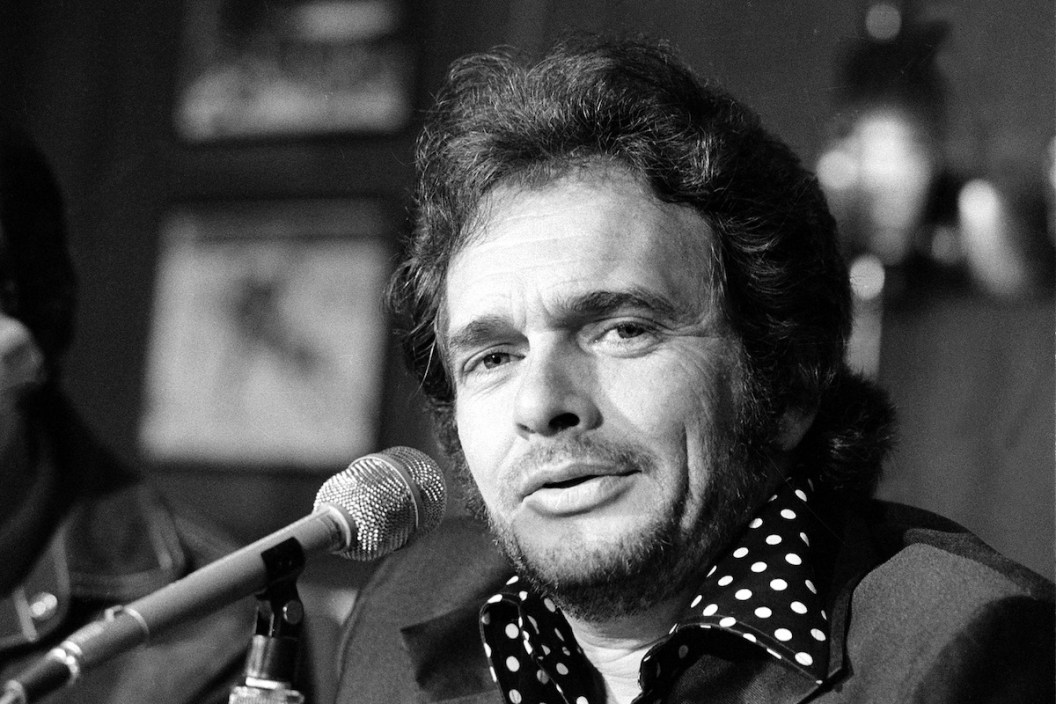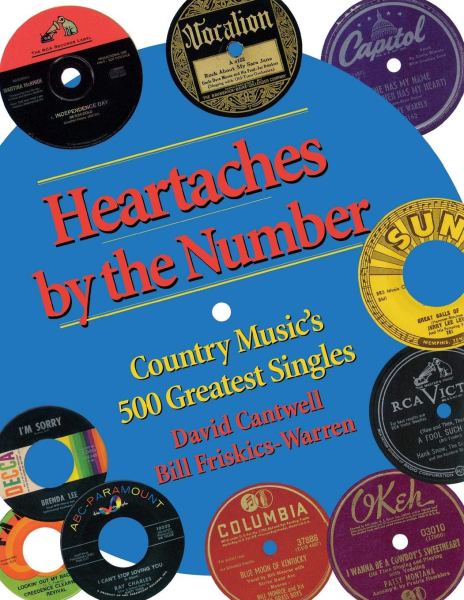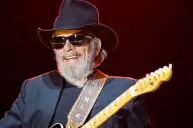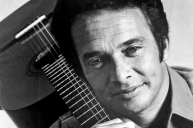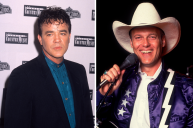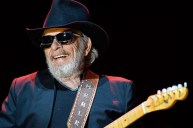Merle Haggard's 1970 crowning as the first-ever ACM Entertainer of the Year followed a run of singles from 1969 that remain unmatched in country music history.
Videos by Wide Open Country
Haggard and backing band The Strangers' incredible stretch of Top 10 success began in 1966 with No. 5 hit "Swinging Doors" and spanned 35 straight non-holiday singles to 1977's "Ramblin' Fever." Chart-toppers in that span range from 1966's "I'm a Lonesome Fugitive" to a 1976 cover of Bob Wills and The Texas Playboys' "Cherokee Maiden."
Early in that run, three singles released in a seven-month span placed Haggard firmly atop the country music heap as the genre entered the '70s: the 1969 releases "Hungry Eyes," "Workin' Man Blues" and "Okie From Muskogee."
"Hungry Eyes"
Haggard's big year began in February with "Hungry Eyes" (sometimes titled "Mama's Hungry Eyes").
It's a compassionate look at how his parents' generation survived labor camps and other hardships in California after being driven West from Oklahoma by dust storms, a severe drought and the Great Depression.
"It may just be three minutes and twenty-three seconds long, but 'Hungry Eyes' is as monumental--and artful--as the Dust Bowl photos Dorothea Lange took for the Farm Security Administration during the Depression," wrote Bill Friskics-Warren in Heartaches By the Number: Country Music's 500 Greatest Singles.
Haggard comes across as both the tender-hearted yet troubled son from "Mama Tried" and the poet of the people heard on "I Take a Lot of Pride in What I Am"--two hats he'd often wear concurrently for the remainder of his life.
A who's-who of country stars went on to cover "Hungry Eyes," from George Jones and Conway Twitty to Emmylou Harris and Kinky Friedman.
"Workin' Man Blues"
Comparable levels of socio-political sympathy and salt-of-the-earth wisdom mark June 1969 release "Workin' Man Blues."
Instead of considering past workers' struggles as he did with "Hungry Eyes," Haggard wrote and sang a blue-collar anthem for every contemporary millhand and mechanic with a go-to barstool on Friday night and a sense of dread on Monday morning.
"If you don't know the anxiety, not to mention the pain, of hoping your body can simply hold out until you retire (or longer, if retirement isn't an option), then count yourself lucky," wrote David Cantwell in Heartaches By the Number: Country Music's 500 Greatest Singles. "Everyone in Hag's audience would've known firsthand the burden of an economy that proclaims human beings are worthless unless they work, work, work."
"Workin' Man Blues" influenced everything from "Jesus is a Soul Man" singer Lawrence Reynolds' 1970 cover to such spiritual successors as Billy Ray Cyrus' "Busy Man" and Sammy Kershaw's "National Working Woman's Holiday."
"Hungry Eyes," "Workin' Man Blues" and the latter's b-side, "Silver Wings," appear on the Ken Nelson-produced album A Portrait of Merle Haggard.
Read More: "Maggie's Song": A Tribute to Chris Stapleton's Dearly Departed Family Dog
"Okie From Muskogee"
Much like Haggard devotees Lynyrd Skynyrd's "Sweet Home Alabama," "Okie From Muskogee" gets interpreted two very different ways. Some hear Skynyrd and Haggard as earnestly defending a red state (in modern terms) against coastal elites, while others define both songs as tongue-in-cheek takes on the warts of warts-and-all tellings of rural life.
There's plenty to read or listen to about "Okie's" meaning, which should tell you how confusing it can get when trying to define Haggard's beliefs by his songs. His next single, 1970's "Fightin' Side of Me," seems to back pro-conservative views of "Okie," while the hippie and cowboy love story in 1971's "Big Time Annie's Square" strengthens arguments that the pot-smoking Strangers were sharing an inside joke. In short, country music doesn't always fit neatly into a particular political box.
However you interpret "Okie From Muskogee," its place in 20th century country music lore defines Haggard's legacy as a songwriter, making the September single as strong a finish as he could've plotted for an Entertainer of the Year campaign.
Now Watch: A Playlist of Willie Nelson's Best Duets and Collaborations
https://rumble.com/embed/u7gve.v3v86n/
